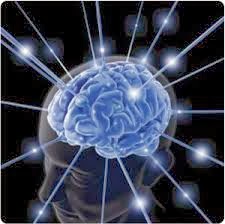| Online: | |
| Visits: | |
| Stories: |

| Story Views | |
| Now: | |
| Last Hour: | |
| Last 24 Hours: | |
| Total: | |
“False Memories” – The Hidden Side Of Our Good Memory
Memory is a cognitive process which is intrinsically linked to language. One of the fundamental tasks that the brain carries out when undertaking a linguistic activity – holding a conversation, for example – is the semantic process.
On carrying out this task, the brain compares the words it hears with those that it recalls from previous events, in order to recognise them and to unravel their meaning. This semantic process is a fundamental task for enabling the storing of memories in our brain, helping us to recognise words and to memorise names and episodes in our mind. However, as everyone knows, this is not a process that functions 100% perfectly at times; a lack of precision that, on occasions, gives rise to the creation of false memories.
Two pieces of research, recently published by Kepa Paz-Alonso at the Basque Center on Cognition, Brain and Language (BCBL) in the Journal of International Neuropsychological Society and Schizophrenia Research scientific journals, have shown that this semantic process linked to the subsequent recognition of such words amongst children as well as amongst adult schizophrenics, is less efficient than that produced in a normal adult brain. Moreover, both studies have shown that children are less prone to producing this type of false memory in their brains, and something similar occurs in patients with schizophrenia.
One of the reasons for this phenomenon is that children do not have this semantic process as automated and developed as adults. That is, the adult brain, after making the same connections over and over again between various zones of the brain concerned with memory, has mechanized the process of semantically linking new information for its storage. Nonetheless, according to the results of Mr. Paz-Alonso’s research, this process is more likely to generate false memories in the brain of an adult than in a child’s brain.
According to the researcher, “in reality, the same processes that produce these “false memories” among healthy adults are also responsible for their having better memory. Rather than a memory defect, this effect is an example of the price that we sometimes have to pay for the virtues or merits of our memory; the two sides of the same coin, and the study of both of which enables us to better understand how our memory works as well as the cerebral mechanisms on which it is based.”
In the case of the research among children, Mr. Paz-Alonso tested the capacity for memory of a group of 8-9 years-old children and a group of adults using functional magnetic resonance techniques. In the case of the group of persons suffering from schizophrenia, these were compared with adults without psychiatric disorders, using similar materials as in the study on children, although behavioral techniques were used in this case and the scanner was not employed.
Source: http://www.ineffableisland.com/2014/02/false-memories-hidden-side-of-our-good.html




